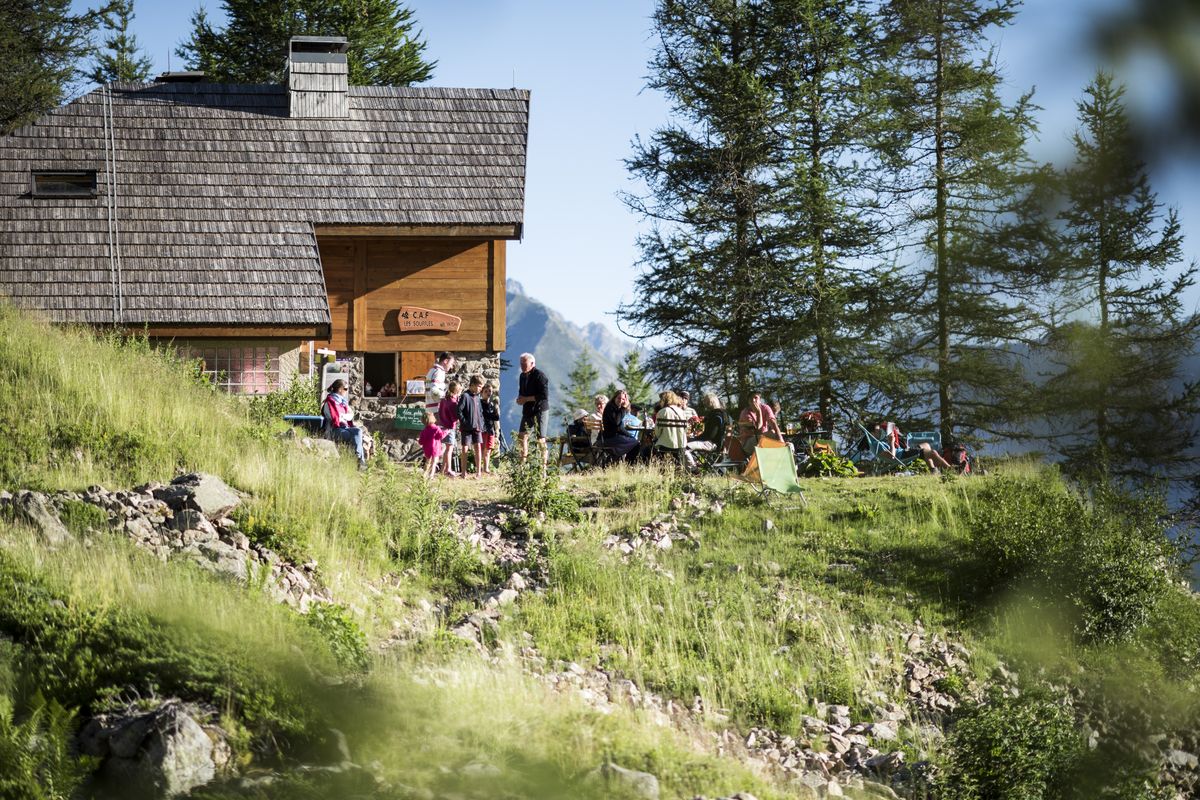
1. From Villar Loubière to the Refuge des Souffles
In summer, the trail up to the Refuge des Souffles is like a walk in a botanical garden, with its attendant host of insects! Overlooked on the whole ascent by the Cime d’Orgière, you really feel that you are entering the world of the high peaks.
Tommy Bulle
Description
- The start of the trail is marked by National Park signposts. Follow the track marked by a GR pictogram and cross a small footbridge. On the opposite slope, the Arraches gradually emerge into view. The path runs uphill until it reaches a signed junction.
- Turn left, cross some screes followed by a small stand of deciduous trees. After a final steep section where a small spring flows, the refuge comes into sight. From here, reaching the refuge is a walk in the park!
- Departure : Villar Loubière
- Arrival : Refuge des Souffles
- Towns crossed : Villar-Loubière
6 points of interest
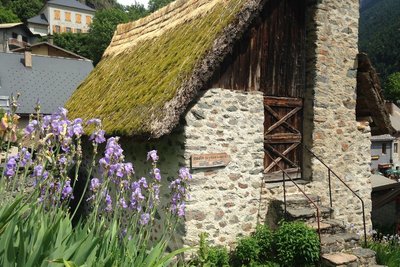
Le moulin de Villar-Loubière - Florence Chalandon ©  History
HistoryVillar-Loubière windmill
As you begin the steep climb towards the Col de la Vaurze, don’t miss the unusual Villar windmill, covered in vegetation. Built in 1838, this legacy from past times has been perfectly preserved with its curious horizontal wheel. It was still in use 50 years ago, milling wheat, but also nuts and rapeseed. It was restored in 1979 and is the last working windmill in the Valgaudemar valley.

Les arraches - Olivier Warluzelle - PNE  Geology and geography
Geology and geographyArraches
From the refuge, or during the climb, a peculiar geological formation may catch your eye on the opposite bank, above the old hamlet of Peines. Sedimentary rocks are trapped in the middle of crystalline formations where erosion has created a specific pattern of erosion that looks like a giant tiger has clawed at the rock. This morphology is what gave it the name Arraches.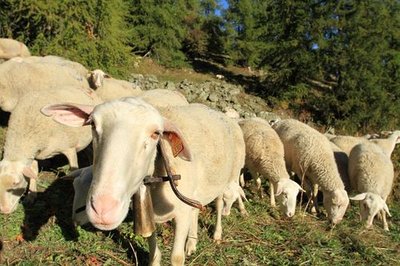
Brebis dans un mélézin - Jean-Philippe Telmon - PNE  Pastoralism
PastoralismSheep on the mountain pasture
During your walk, you might come across sheep on the mountain pastures. This is an old form of pastoralism, as proven by the dry stone enclosures that you will see. These are known as 'jas'. You will also notice a rock shelter near to the Clot. The sheep that are in these pastures belong to breeders from the valley or from the Bas Champsaur area.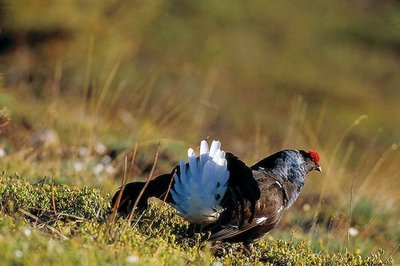
Tétra lyre mâle - Robert Chevalier - PNE  Fauna
FaunaBlack Grouse
The upper limit of the forest is where you are likely to see the black grouse. The female has faith in her bland-coloured feathering that camouflages her in the vegetation, making her difficult to spot. On the other hand, the male, which is black and white with red "eyebrows”, is not so private, particularly during the reproduction season when their cooing and hissing sounds echo in the mountain in the early morning.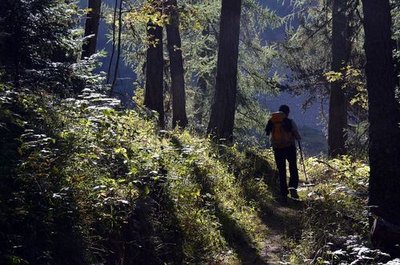
Montée au refuge des Souffles par la forêt de mélèze du Lautier - Bernard Guidoni - PNE  Flora
FloraVariety of the natural environment
This walk is a summary of south facing slopes in the Valgaudemar area. It starts in the warm scree that it more or less vegetated. It then progresses over lawns and moors of juniper, blueberries or bearberries... They give way to mountain ash, whitebeam and amelanchiers indicating that the forest will soon take over. Higher up, the beech forest casts shade on the walkers, next a beautiful larch forest is a sign that the forest environment will give way to the high altitude moors and lawns. The Lautier lake and the surrounding ponds are a haven for aquatic species. Still higher, is the realm of rocks and chamois.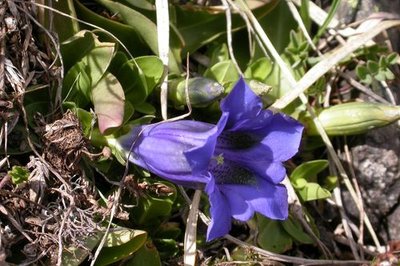
Gentiane - Olivier Warluzelle - PNE  Flora
FloraVariety of plant life
There is a large variety of plant life along the itinerary, particularly on the slopes above the refuge, due to the exposure, the soil types and the altitude. Marjoram, lis, laserwort, houseleek, stinecrop, gentian, columbine, aconite and many others are present.
Forecast
Altimetric profile
Recommandations
Take care at the start of the path when crossing some sheer sections, and in heavy rain beware of rock falls.
Information desks
Valgaudemar Park house
Ancien Asile Saint-Paul, 05800 La Chapelle-en-Valgaudemar
Information, documentation and a reception area with permanent and temporary exhibitions. La Maison du Parc is labeled "Tourism and Disability". Free admission. All animations of the Park are free unless otherwise stated.
Access and parking
From the N85 main road, take the fork towards Saint Firmin, follow signs for La Chapelle en Valgaudemar and stop and park in VillarLoubière.
Parking :
Source

Report a problem or an error
If you have found an error on this page or if you have noticed any problems during your hike, please report them to us here:

